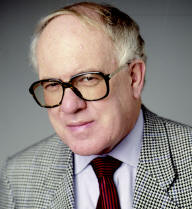The Editor's View May 05
Magazine

John Jenkins' monthly column from Writers' Forum magazine
How to write six books a year . . . spread the prizes around . . . Potter prices worry the smaller publisher
WHAT would it take for you to give up a good day job and trust your future and income to life as a full-time author? The answer is easy if you have been given a substantial three-book deal from a major publishing house, but supposing you had one or two inquiries, a bit of lecturing and a little guaranteed but not long-term freelance work?
It is a question which crops up frequently. If you listen to the Jeremiahs they will say that you cannot make a living out of writing unless you are a best-selling author. Advice runs to the other extreme quoting Jack Warner, founder of Warner Brothers Studios: "No guts – no glory."
The key to your decision must be discipline and stamina.
It’s no good unless you have the dedication to write – and to sell yourself. You cannot sit there muttering about writer’s block and a dearth of ideas.
Phil Carradice faced such a decision a few years ago. He had built up a useful connection with a few publishers, ran a giveaway golf magazine and adapted his lifestyle to suit. As a writer he is a Jack of all trades and master of three or four. He took the plunge.
In the past year he has produced six books – yes, six books in a year.
Two of the books have already appeared. He wrote Coming Home, the story of life in post war Britain. It accompanies a BBC radio series and is a follow up to his successful Wales At War.
Within three weeks of that one being published Gomer Press issued his novel Hannah Goes to War. This is the story of four children living in Swansea during the early days of World War II.
At the moment he is working on a collection of short stories based on the problems children face in society today: Life Choices.
Then it’s on to research about Welshmen serving at sea in World War II – co-written with Terry Breverton. The final two books are about his home town of Pembroke Dock and a history of the docks at Penarth.
In between he is busy visiting schools and working with children to produce poetry and stories. Then there is writing and presenting a six part programme for Radio Wales and editing the South Wales Golfer.
Her admits that three or four hours sleep a night is all he needs.
TALKING of successful writers we see that Andrea Levy – winner of the Orange and Whitbread prizes with Small Island has picked up another £10,000 with the Commonwealth Writers Prize.
Chairman of the judges, Daniel Massa, said: "It brilliantly juxtaposes the problems of cultural locations that are inextricably enmeshed in the history and politics of the colonial and post colonial experiences in the West Indies, England an even India. Andrea‘s novel skillfully depicts the politics and stresses of race relations in a global environment of shrinking borders and developing cultural identities."
Two thoughts: Is it time to restrict books to one major prize? And how can it be done?
And then, is there somebody who could write a book juxtaposing the benefits of cultural locations that are inextricably enmeshed in the history and politics of the colonial and post colonial experiences . . . and a novel skillfully depicting the politics and inspiration of race relations in a global experience?
MANY are the ways to get published and in this issue we report on Cathy Cassidy who sent her manuscript to three agents – one because he had a funny name.
The funny name turned out to be the effervescent Darley Anderson who took up the book and guided her to undreamed of success.
Another editorial guru of initiative is Simon Spanton who trawled the internet in search of talent and discovered 26-year-old Scot Lynch.
Spanton, editorial director of Gollancz, would have delighted the entrepreneurial founder of the company, Victor, with his find.
Result? A four-book deal and various rights already sold to the United States, France, Germany and Holland.
AT OUR local Borders recently the assistant at the checkout took my cash and asked if I wanted to order an advance copy of the next Harry Potter. It was question every assistant was asking every customer.
Who is going to offer the biggest discount on this title?
The lowest price is likely to be around £9.99. Smaller independent bookshops cannot compete.
Last year Britain bought 205 million books. James Heneage, who founded Ottakar’s a few years ago with three shops says his chain can grow to 300 sites. Brave words when the forecast is that within four years one-in-ten books will be bought in supermarkets.
It’s not all good news. The return for one author on her paperback sold in a supermarket chain is 10p. Then she corrected herself: "Sorry, no, because 10 per cent of that goes to my agent so I get 9p."
John Jenkins, Publisher, Writers' Forum
Read the article about setting up WritersServices which was originally published in Writers' Forum magazine.
© Writers International Ltd 2005. Reproduced from the December-Januray edition of Writers' Forum magazine by kind permission of the editor.
